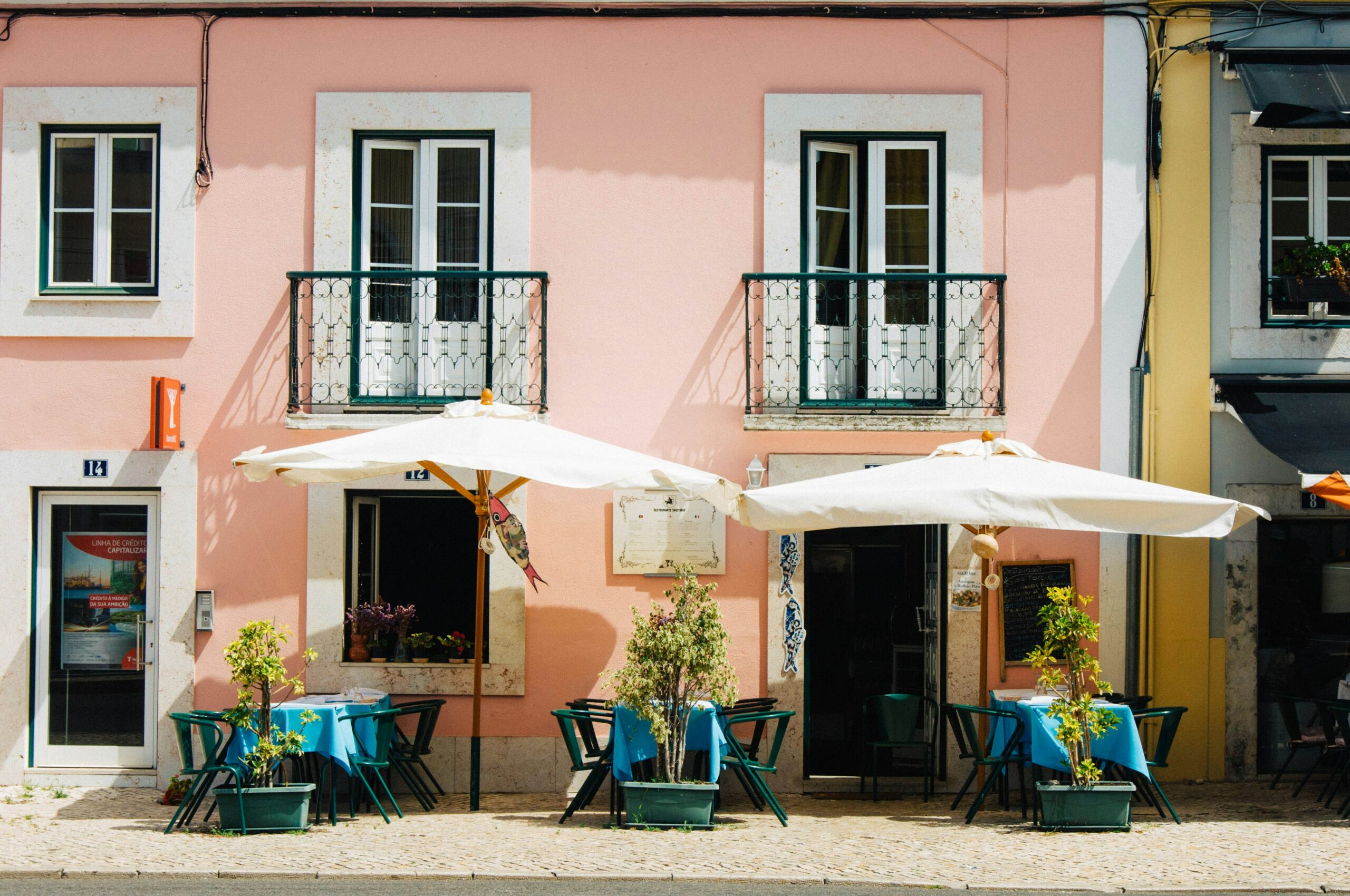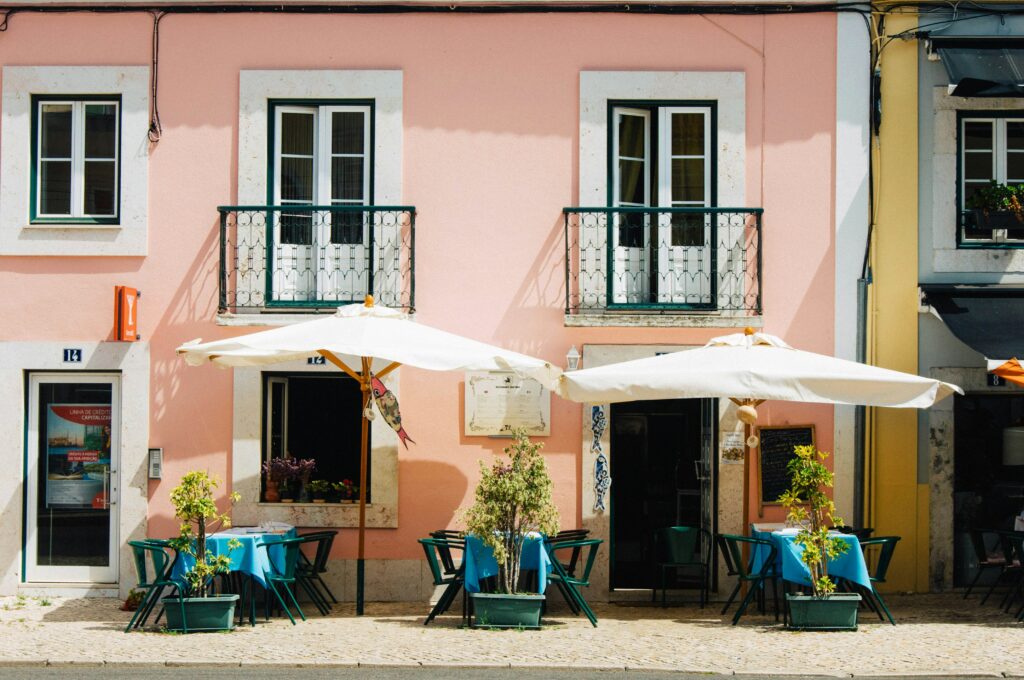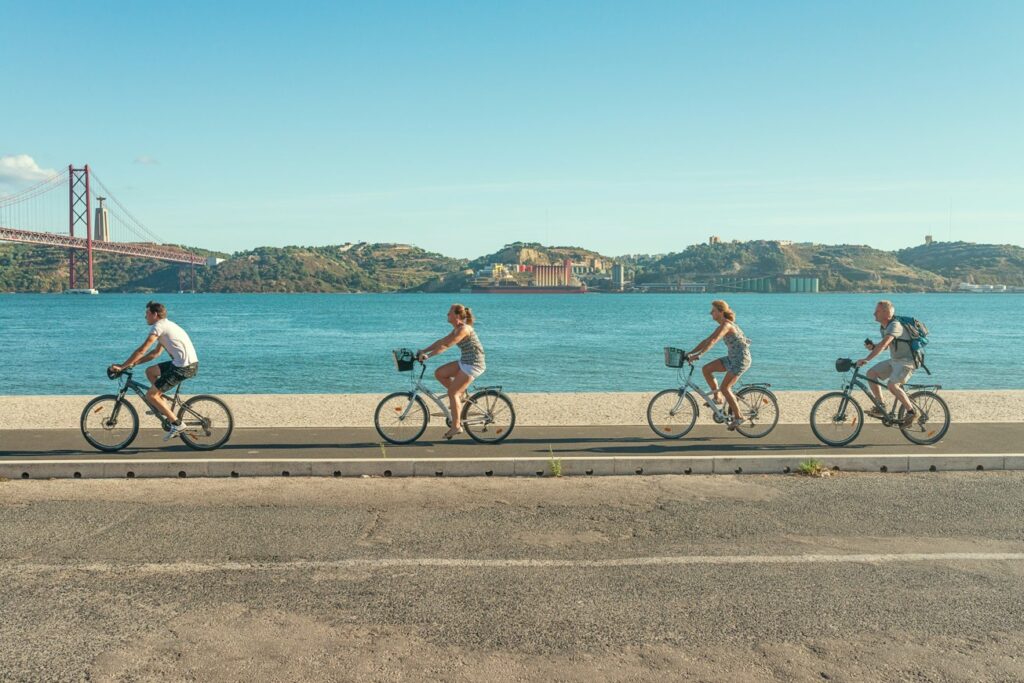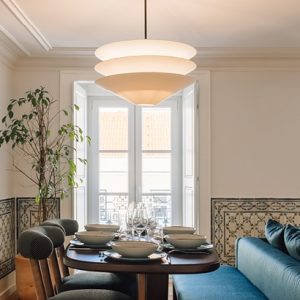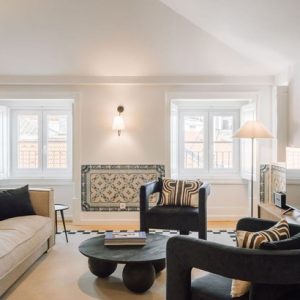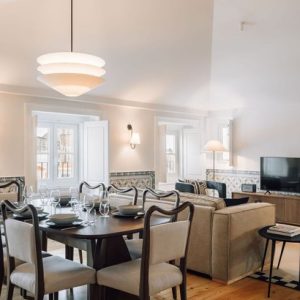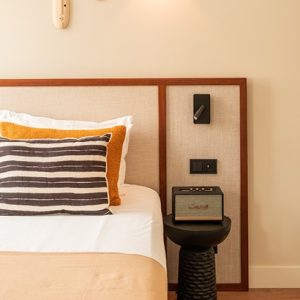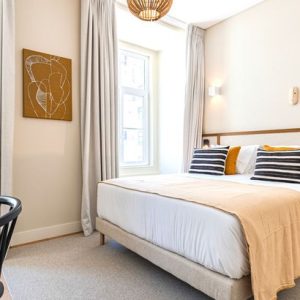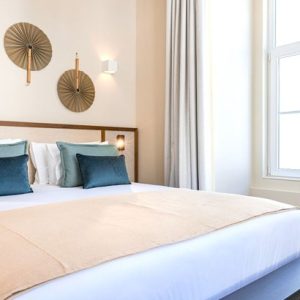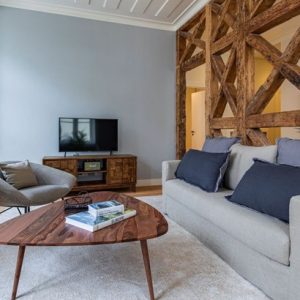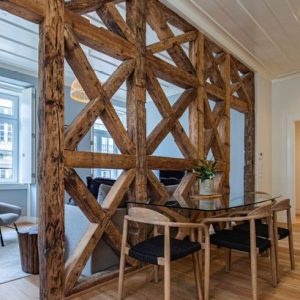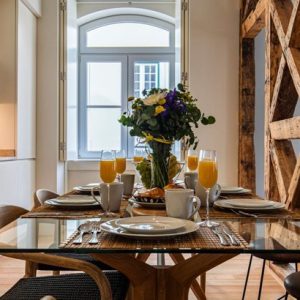Traveling to Lisbon, have been reading a lot about the city, but still have no idea where to start exploring? We’ve got you covered! Here are our suggestions for four days in Lisbon.
Photo credits: Francisco Nogueira
Day 1: Along the Tagus
The views from the Tagus are an absolute must! The river area is the perfect combo of modern and traditional architecture. Elements like the beautiful contemporary-style Champalimaud Foundation, the Belém Cultural Centre, and MAAT Museum blend with the modernist front doors of the residences along the way.
We recommend starting by heading to the Champalimaud Foundation, where you’ll be able to take in the Tagus in full – maybe even grab something to eat at the foundation’s restaurant. Walk along the riverside toward maat Museum, but not without stopping at the Belém Tower. If you’re traveling with kids, it might be cool to check out the Navy Museum – it’s a great place to learn about Portugal’s history and the Discoveries period. The maat Museum is a must for art lovers – besides the astonishing building, it usually showcases exhibitions by prominent artists.
We’d recommend taking the evening to go on a cruise across the river – that way, you can enjoy the view from both sides, including Lisbon and Almada. There are all kinds of trips, from party boats to romantic getaways, or a simple tour with fellow travelers. Now, the moment some of you have been waiting for: tasting fresh Portuguese seafood and fish! The best place is Ramiro, despite the long lines. If you’re with people who aren’t into fish, we recommend the restaurant’s signature steak sandwich. If you’re not really looking to experience oceanic flavors, why not explore Cais do Sodré and its booming night scene? From Lupita’s pizzas to modern sharing plates-style Cosmo, Boavista Social Club, and Tricky’s, or crafted Portuguese tapas and local beer at Musa da Bica, there’s lots to choose from. On the way to dinner, grab a beer at Bar Lis, one of the few places in Lisbon still serving beer for 1€.
Photo credits: José Costa Barbosa
Day 2: Rato – Rossio – Avenida da Liberdade
Today we’re starting in Rato, a square that can take you to different parts of town, including Estrela, Santos, Avenida da Liberdade, and the one we’re exploring today, Príncipe Real and Bairro Alto. Take Rua da Escola Politécnica – there are lots of cute shops to check out, including a building called Embaixada, filled with contemporary Portuguese and international brands – towards the São Pedro de Alcântara viewpoint, passing the Príncipe Real garden and kiosk, where you can grab a coffee. This viewpoint is iconic because it boasts unique panoramic day and night views over the old city. On your right side, you’ll have Bairro Alto, a neighborhood known for its bars and nightlife where you still witness the local way of life.
Once you reach the bottom of Príncipe Real, you’ll find yourself in Chiado, one of Lisbon’s most important squares. There are several unmissable spots here: be it the more than 100-old Brasileira coffee shop, or Bairro Alto Hotel’s terrace, there are plenty of places to grab a drink or a bite to eat. On your way down to Rossio, stop at Benetton’s level 3: they have restored an old elevator and kept it in the store for people to visit. If you keep following that street, you’ll eventually find the Santa Justa elevator on your right – don’t feel discouraged by the big queues, we promise you the wait will be worth it.
Take a few more steps and you’ll be in Rossio, another iconic square. There’s a statue of King Dom Pedro in the middle and a beautiful theatre towards Liberdade Avenue. The area is filled with historical buildings from the Neo-Manueline period. Some even have preserved frescos (wall and ceiling paintings) inside. There are plenty of restaurants around, but most of them are tourist traps. We recommend “A Tendinha do Rossio”, Lisbon’s oldest tavern. From here, start going up Liberdade, a remarkable avenue filled with big trees, kiosks, and classy stores from international brands such as Louis Vuitton, Guess, Longchamp, Zadig & Voltaire, Furla, among others. For a more local feel, explore the narrower streets on the left and right of this large avenue.
Day 3: Gulbenkian & Eduardo XVII Park
Now that you’ve explored part of the city on foot, why not head to some interesting museums? Start with the Lisbon Museum – as the name hints, it will teach you all about the city’s history – and then get your art sorted at the Calouste Gulbenkian Foundation. All the buildings were designed by prominent architects, including the most recent one, CAM. Inaugurated in September 2024, and designed by Japanese architect Kengo Kuma, it features contemporary art exhibitions and events. Also, it will make you feel like you’ve jumped to Tokyo.
Walk through the São Sebastião neighborhood, visit the Lisbon Central Mosque, and the Amália Rodrigues Garden, where there’s Linha D’Água, a nice restaurant on top of the hill serving drinks and light meals. Make your way to more residential neighborhoods like Saldanha and Picoas, and maybe end your day at Eduardo XVII Park for a relaxed walk and a nice view from the top.
Photo credits: Lisa Fotios
Day 4: Graça & Alfama
Start your last day where it all began: the riverside. The Rua Augusta Arch (in Praça do Comércio) is a must-see construction dating back to the 19th century. From there, walk past other beautiful restored buildings until you reach the Lisbon Cathedral – no European country trip is complete without a visit to a Catholic venue. The interiors are rich and majestic, well worth the visit.
From here, head uphill to the S. Jorge Castle, which also boasts incredible views of the old city. Keep going up – yes, Lisbon is filled with steep streets – to the cute Graça Funicular that takes you and from the Mouraria area. Feeling your legs shaking already? Don’t worry, it’s time to head down to visit the Fado Museum, a very interesting venue if you want to know about the Portuguese music that made it into UNESCO’s World Heritage List. Start at Rua dos Lagares, and you’ll pass by Portas do Sol, where you can grab a drink and bask in the sun. The Fado Museum is located in Rua Jardim do Tabaco. If you still have some time left, why not visit the National Pantheon? It is an astonishing church whose construction dates back to the 16th century. It’s where some of the most important people in Portuguese history are buried, including writers Sophia de Mello Breyner and Almeida Garrett, general Humberto Delgado, and fado singer, Amália Rodrigues.
Still some time left?
Feira da Ladra
If you have spare time and are in town on a Tuesday or Saturday, we recommend visiting Feira da Ladra, a fantastic flea market located in Campo de Santa Clara, a few minutes away from the National Pantheon. You’ll find all sorts of things, from vintage leather jackets to music records, collectibles, antiques, and much more. Maybe you’ll even find something worth buying!
Simão Bookshop
Welcome to the world’s smallest bookshop! Located between Rossio and the S. Jorge Castle, in Escadinhas de São Cristóvão, it has more than 4,000 books in different languages. Founded by a former Chemistry teacher, it’s so tiny it only fits one person at a time. Worth the visit, right?
Peruse for Souvenirs
There are plenty of souvenir shops scattered across the city – mainly downtown – but if you want something else besides a fridge magnet or a postcard, there are a few brands you should know about. Benâmor and Castelbel are two Portuguese brands selling natural cosmetics, soaps, and home scents – the perfect gift for someone who’s moved into a new house, or a mother looking to spruce up the place. We recommend Embaixada and the shops along Rua da Escola Politécnica to look for gifts for friends and family.
